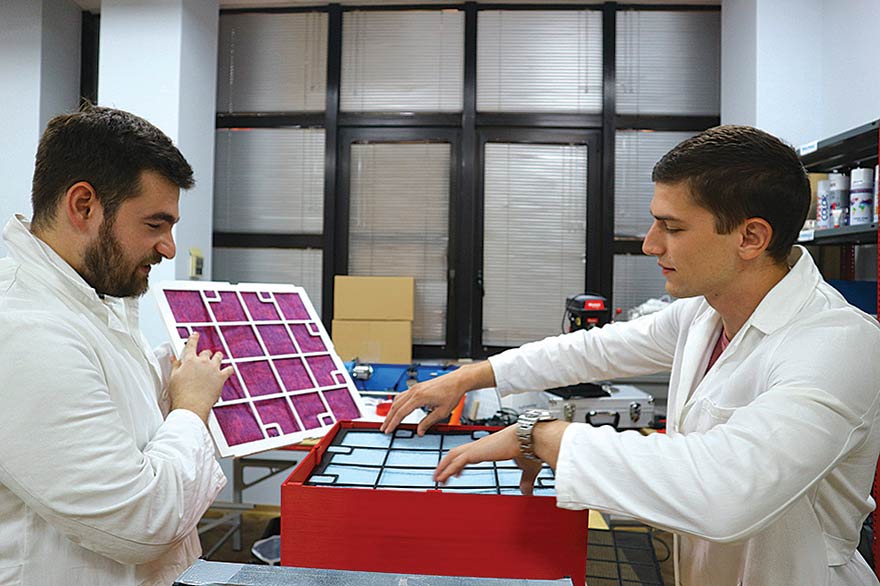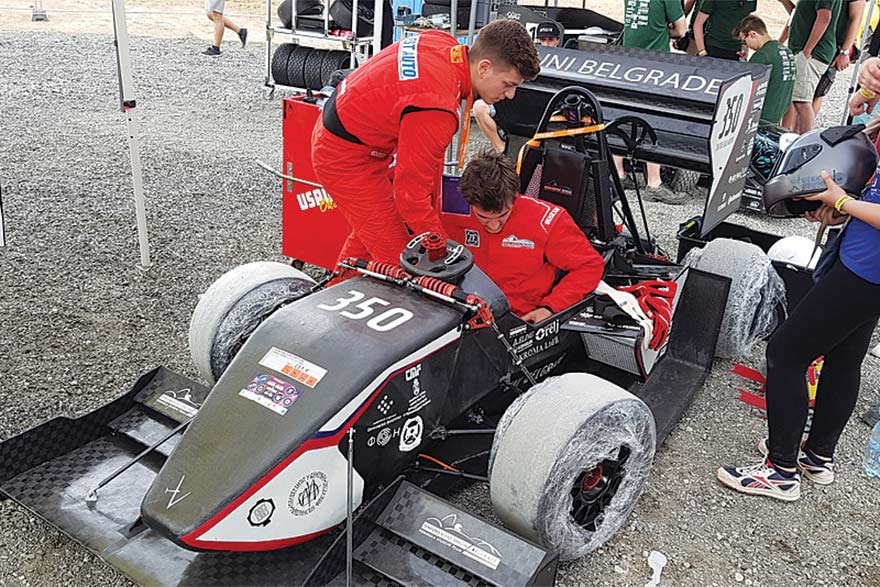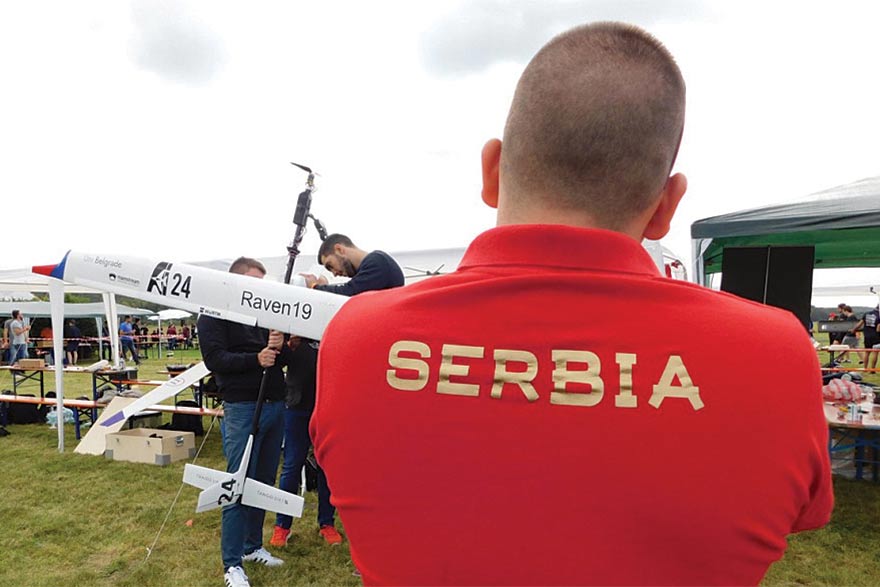The Faculty of Mechanical Engineering at the University of Belgrade has improved the quality and attractiveness of its study programmes over recent years, adapting them to global trends in order to open the way for students to pursue successful professional careers as mechanical engineers, which are in demand both in the country and around the world.
The essence of higher education reforms should be based on the fact that learning is centred on the student, who – in addition to acquiring top theoretical knowledge – should also learn how to apply that knowledge and develop his ideas, says Radivoje Mitrović Ph.D., Dean of the Belgrade Faculty of Mechanical Engineering.
You have pointed that the Faculty of Mechanical Engineering bases its work and successes on high-quality teaching, scientific research, international cooperation and cooperation with the commerce sector. That hasn’t changed?
-All of that is still among the key development priorities of the Faculty of Mechanical Engineering. Our aim is to make a new quantum leap in operations in all segments of our engagement– through raising the quality of teaching, scientific research works, cooperation with the companies and international cooperation – which future generations will continue and develop further.
Following our motto “Excellence now and in everything”, we primarily turned to focus on the best students, who will develop new products and technologies that will contribute to the economic development of the country and a much higher growth rate of national GDP. It is precisely the reason why we’ve established the Student Centre of Excellence, which currently brings together five student teams in the fields of motor vehicles, aviation, shipbuilding, robotics and biomedical engineering.

We participated successfully in the public call ‘Master 4.0’, which was implemented by the Serbian Ministry of Education, Science and Technological Development on the basis of an idea of the Digital Serbia Initiative. The result is a new master’s study programme called “Industry 4.0”, which we are conducting together with the Faculty of Mathematics at the University of Belgrade and with the active participation of leading domestic and foreign companies.
We are also very proud of our cooperation with the companies, not only in the fields of education and scientific research, but also through joint work on projects. A significant number of professors and associates have highly developed cooperation with the commerce sector and industry, through which we generate more than 40% of our own income.
When it comes to international cooperation, our researchers – as project leaders and participants – are involved in four Horizon 2020 projects, then in projects within the scope of the Erasmus + programme, as well as bilateral cooperation projects funded by the Serbian Ministry of Education, Science and Technological Development.
Is the reason for increased interest in enrolment in your faculty related to the re-industrialisation of Serbia, which enables graduates to find work in our country, but also the fact that the Faculty of Mechanical Engineering’s diplomas are recognised worldwide?
– Contributing greatly to the increased interest in mechanical engineering studies among young people are both the radical change in teaching methods and the permanent innovation and harmonisation of study programmes with the needs of industry as well as with the latest trends in mechanical engineering worldwide.
Our faculty distinguishes itself as one of the few in Serbia to offer students a wide range of fields and promising occupations, some of which are unique in the region. This is also one of the reasons why interest is growing in continuing education on master’s and Ph.D. studies.
The quality of studies at the Faculty of Mechanical Engineering has also been confirmed by the international accreditations ASIIN and RINA, while many companies have recognised the Faculty of Mechanical Engineering as a place where top engineers are educated. Among them are German companies Brose, ZF (Cet-ef), Siemens, Messer Tehnogas, NIS, EPS, Zastava Arms, Sloboda, Metalac etc.

Cooperation with these companies means adapting the study curricula according to their needs, while they participate actively in the education process through scholarships, professional work practice and joint work on tangible projects, with the possibility of gaining employment even before our students defend their graduate thesis.
As of autumn, students in Serbia receive the opportunity to study according to the dual education model – developed according to the needs and specificities of the higher education system of the Republic of Serbia. The Law on Dual Studies envisages the introduction of a flexible model that higher education institutions would adopt and adjust themselves and connect with interested companies through their own engagements.
The contents of academic master’s studies at the Faculty of Mechanical Engineering are conceived in such a way that they also contain, in addition to obligatory subjects, a group of elective subjects. This creates the possibility to define topics and areas based on the companies’ needs that would be addressed through elective subjects – which would contribute greatly to further improving the quality of academic teaching.
The Faculty of Mechanical Engineering generates more than 40% of its own income through cooperation with the economy
What is a good engineer? One who graduates with the highest grades, one who completes their studies on time or one who thinks more broadly and sees further?
– The best students aren’t necessarily those with the highest grades, rather those who have a kind of engineering “x factor” – the ability to imagine, conceptualise, visualise and, ultimately, turn their ideas into an actual product. Our aim is to educate a new generation of engineers, who will develop new products and technologies. Our ambition is to become part of the creative industries, where newly created intellectual value is the greatest and which will enable the domestic economy to take its own place in the global value chain.
Could you single out some of the most significant projects of the Innovation Centre, which has already been in existence for 15 years?
– The basic role of the Innovation Centre is to transfer technology and improve the faculty’s connections with the commerce sector. The most important projects that have resulted from this cooperation include: the Serbian crop field machine; development of HVAC equipment; the KOKAN 500s fruit picker; the device for dispensing and storing wine, and many others. One of the latest projects is a tractor platform for spectrometric reconnaissance of field crops.
The main carriers of these projects are Ph.D. students.
Do you agree with the assessment that the Faculty of Mechanical Engineering took a great leap forward in the educating of future mechanical engineers with the establishment of the Student Centre of Excellence? Why is it important?
– With the establishing of the Student Centre of Excellence, we provided the conditions and space for students to create their ideas, then to further develop them in the faculty’s laboratories, and finally to convert them into fully functional prototypes.

The goal is for students to build up and improve the knowledge they gained during the studies by working on specific projects, thus acquiring essential practical competencies and skills that are imperatives of the times in which we live. For them to learn, for example, how to present, explain and defend their projects in front of potential financiers, i.e. how to animate sponsors and companies to support them…
The idea is for the final year of studies to be filled with as much practical engagement as possible.
Do the professors and students of your faculty cooperate with major world companies, but also with small and medium-sized enterprises in Serbia?
– The Faculty of Mechanical Engineering has been carrying out the cooperation with the industry for decades. That cooperation has intensified with the arrival in Serbia of the world’s leading companies. What is especially important is that, in addition to production facilities in Serbia, most of these companies, such as Brose, ZF, Siemens, Bosch, are also opening their own research and development departments. This creates room not only for cooperation through various types of training and teaching, but also for active professional cooperation and the exchange of knowhow and experience through research and development projects.